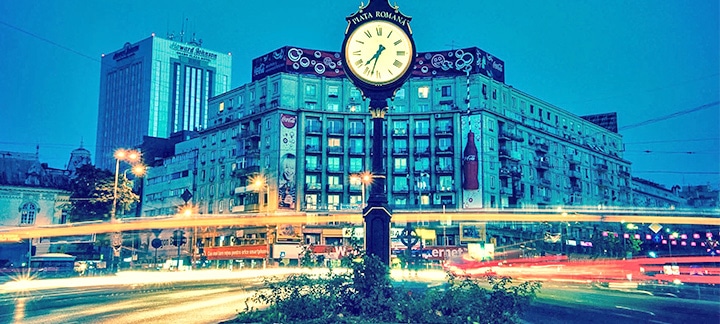Romania remains one of Europe’s biggest food importers and in the top 20 in the world, despite the country’s huge potential as a producer of grains, fruit, vegetables, meat and dairy.
The Eastern European country should be a very attractive market for exporters from around the world, as its food imports have reached record values last year. In 2016, Romanians imported 5.8 billion Euro worth of food, beverages and tobacco, with 8.6% more than in 2015, which was also a record breaking year.
Among the product types that showed significant growth last year were seafood, fish, exotic fruit varieties like pomegranates and avocados and beverages like cider and champagne.
The rural segment fuels the growth
An increase in the population’s purchasing power, plus the fact that a larger percentage of the country’s vast rural population now shops in supermarkets instead on relying on their domestic production are some of the reasons for the growing imports.
Analysts expect that food imports will continue to increase (and the situation in the first part of 2017 confirm this) as a better infrastructure will allow quicker access to super and hypermarkets for the population that lives in remote villages.
Another interesting aspect that boosts imports is that the small farmers can no longer produce enough to meet their own needs and they have to reach out to other sources of food.
In 2016, for example, Romania’s food production reported a growth of only 2.7% compared to the previous year, while food sales increased by 15.2%.
The top food products that reported a solid increase in imports last year in Romania are: grains, bakery and confectionery products, chocolate, cheese, coffee, citrus fruit, bananas, poultry and milk.
Poultry is king in the meat sector
Meat is one of the top food imports in Romania and most of the imports are coming from other European countries – Germany, Hungary, Poland, Spain or the Netherlands. Despite the country’s many meat producers, meat processing companies and large retailers prefer to import mainly because they consider that other countries offer a better price/quality ratio but also because they have a hard time working with the local companies.
Poultry is the preferred meat by most Romanians, according to a recent study by Transavia. 7 out of 10 Romanians consume poultry more than once a week and 94% of the study responders stated that they prefer fresh meat as opposed to frozen varieties. Chicken breast is the top variety, a reason being its low fat content.
Another interesting aspect revealed by the study is that among international cuisines, 68% percent of the Romanians love Italian food, 37% Greek food and 36% French.
Top fruit and vegetables producers, but also importers
Romania is 5th in a top of fruit and vegetables producing countries in Europe, after Spain, Italy, Poland and Greece. Surprisingly, despite this excellent position, the country still has to import more than 65% of the fruit and 40% of the vegetables consumed.
For some categories, like bananas and other exotic fruits, the dependence on imports is easily explained but for native varieties, like apples, peaches, pears or grapes, which are also heavily imported, the explanations are more complex. One of the reasons is that the large number of small local producers are not able to meet the demand when the consumption spikes. Also, as many of these fruits are seasonal and are not properly stored, in the extra season imports increase. This leads to imports of around 40% for apples and 60% for pears, for example.
Imports are also increasing in the dairy sector, as many of the local milk factories are going out of business or taken over by corporations. Hungary and Poland are the main suppliers of imported milk in Romania and they offer a strong competition to the local farmers.
Another sector that shows potential in the Romanian market is the health food – organic food segment. According to a recent Nielsen study, Eastern European consumers, following the trend started in Western Europe some years ago, are also starting to be more and more aware of the health and nutritional benefits of the products they purchase. 65% of Romanians stated that they are willing to pay more for organic products that don’t come with potentially harmful ingredients.
Top players
Some of the top Romanian food importers and distributors are: Serpico Trading, Macromex, Biogama, ACSI Trade, Simba Invest or Nordic Import Export.
For a complete list of food importers and distributors from Romania you can purchase one of the up-to-date BestFoodImporters databases.
